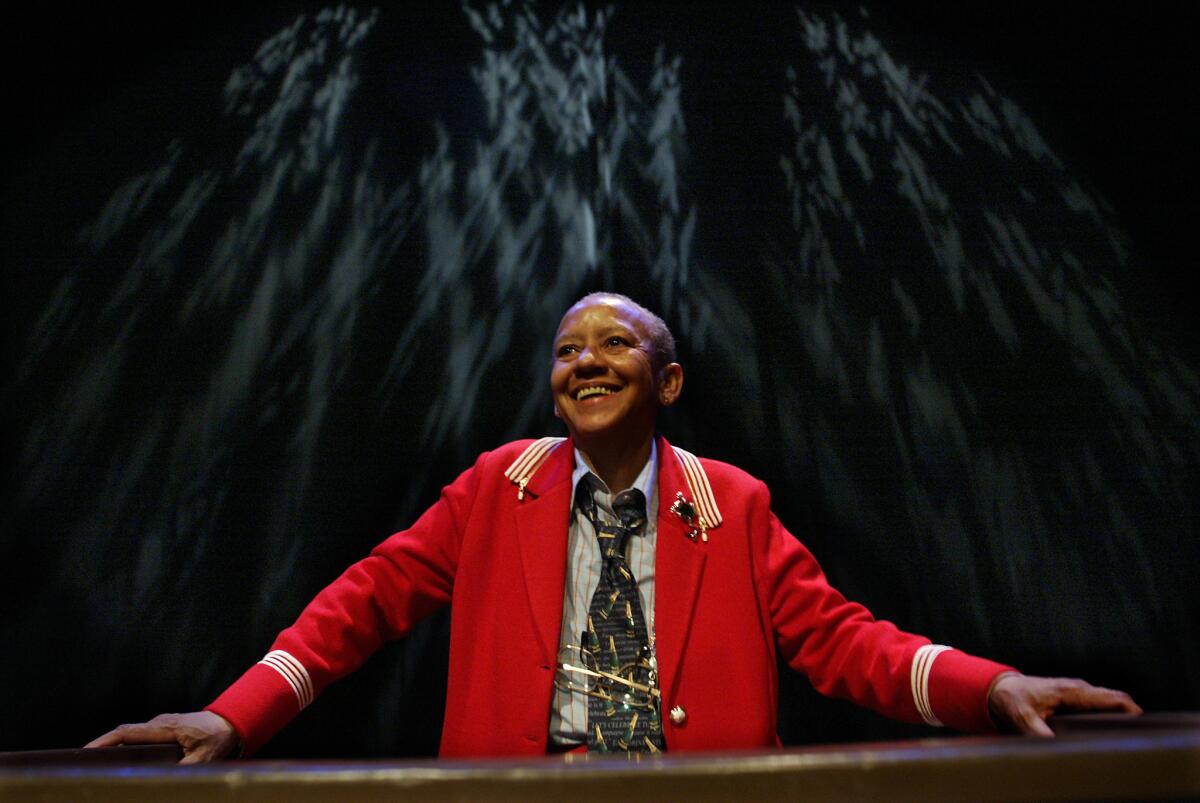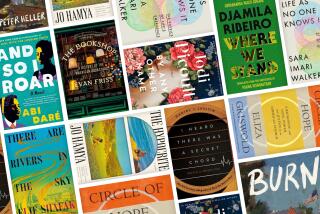Nikki Giovanni mixes it up in ‘Chasing Utopia’

“A poem is not so much read as navigated,” Nikki Giovanni writes in “Chasing Utopia” (Morrow: 144 pp., $19.99). “We go from point to point discovering a new horizon, a shift of light or laughter, an exhilaration of newness that we had missed before. Even familiar, or perhaps especially familiar, poems bring the excitement of first nighters, first encounters, first love … when viewed and reviewed.”
That’s a pretty good description of what Giovanni is up to in this book, which is marked by her signature blend of toughness and accessibility, engagement in the private and the public sphere. At the same time, she is doing something different here, mixing prose and poetry to create what she calls “A Hybrid,” a collection that blurs the lines of content and form.
“Chasing Utopia” is intimate, personal, what we might call a commonplace book, blending memories, reflections, even recipes. At its center is the notion of family — Giovanni’s parents, her aunts, her son — an ideal of domesticity. “I used to watch / my mother cook,” she writes, “she would invariably sigh / a little sigh then light / a cigarette // since no one smokes / anymore Beans / have not tasted as good // I have her sigh / and stack of spices.”
This is not major Giovanni; only occasionally (as in a poem written to commemorate the 200th birthday of Abraham Lincoln) does she invoke a world more expansive than the one we make at home. And yet, in its particularity, its informality, “Chasing Utopia” continually reminds us of what’s important: the connections we develop with those we love.
“I am at that point,” she writes, “In life / When I reread / Old books / Bake my mother’s favorite recipes / Snuggle with a sneezy quilt / Listen to my old rock and roll records / Feel comfortable / And comforted in my old nearly ragged bathrobe.” These, Giovanni wants us to understand, are the things that resonate, the things that root us, the things that make us who we are.
“I think / our job is to tell / the truth as we see it don’t you,” she asks in “Werewolf Avoidance,” and the sneaky beauty of this book is to find such truth in the smallest moments, the ones we often overlook.
At times, this involves fear, dread even: “When my phone trembles / After midnight,” she whispers, “I take / A deep breath / Reach for my glasses / Think of my son // And I Pray.” But even in the midst of that, Giovanni maintains her faith — not that everything will work out but that, in spite of it all and for a while only, we will survive.
In that sense, “Chasing Utopia” wears its intentions lightly; the title has to do with the search for a brand of beer, after all.
Still, even at her softest, her most glancing, Giovanni never looks away from what matters most, which is our ability to look out for one another. “We need to watch / For the scared and the vulnerable,” she warns. “One day it may be / Us.”
ALSO:
Harryette Mullen walks Los Angeles into verse
More to Read
Sign up for our Book Club newsletter
Get the latest news, events and more from the Los Angeles Times Book Club, and help us get L.A. reading and talking.
You may occasionally receive promotional content from the Los Angeles Times.









